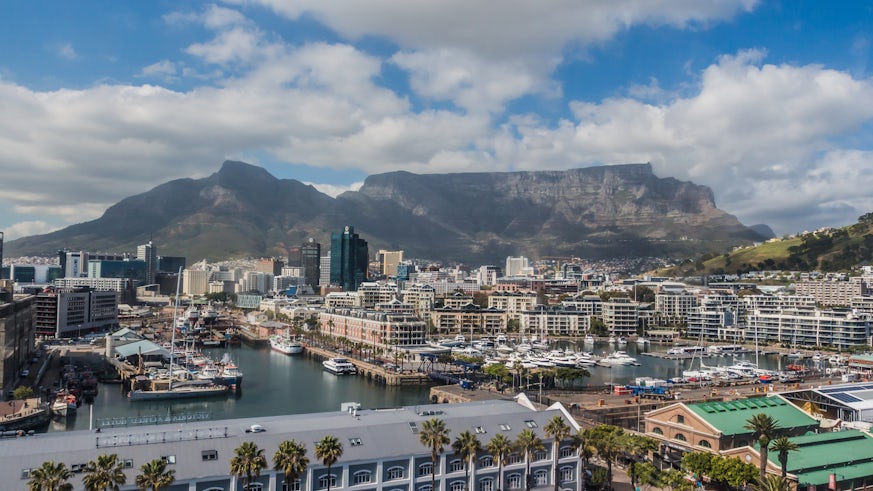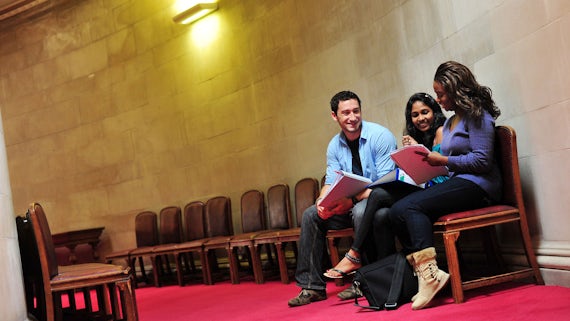Urban water resilience to be the subject of major research project
20 September 2019

The global challenge of how cities cope with water crisis will be investigated by a Cardiff University academic.
Dr Adrian Healy has been selected for a prestigious UK Research and Innovation (UKRI) Future Leaders Fellowship. Supported by a £900m research fund, these fellowships provide researchers from diverse backgrounds and career paths with the flexibility and time they need to make progress on some of society’s most pressing issues.
Professor Kim Graham, Pro Vice-Chancellor for Research, Innovation and Enterprise, commented: “I am absolutely delighted that Dr Healy has secured this Future Leaders Fellowship. Water is fundamental to all life and ensuring access to safe and clean water as cities change and grow is a pressing societal challenge.
“Dr Healy’s fellowship will support an ambitious long-term research programme to address global water shortages, working with international partners. Cardiff University is strongly committed to global health research, as well as developing innovative research leaders of the future.”
One of 78 fellows chosen for this round, Dr Healy will be focusing on four cities in sub-Saharan Africa – Cape Town, Dar es Salaam, Lagos and Windhoek – which have all experienced water shortages as well as strong demographic and economic growth.
Detailed longitudinal research will examine how an individual’s lack of access to reliable public water supplies can affect the choices they make as well as the long-term resilience of the supplies that are available.
In Lagos, the largest city in sub-Saharan Africa, less than 20% of the population are reported to have access to public piped water supplies. Last year, Cape Town attracted worldwide media attention as a sustained period of drought made it, reportedly, the first major city to almost run out of water.
Dr Healy, based in the School of Geography and Planning, said: “This research comes at a crucial time as decision-makers grapple with how to solve the issue of global water shortages. While governments struggle to provide safe, adequate and reliable supplies of water to households and firms, individuals in water stressed cities are resorting to alternative means to secure their survival.
The fellowship builds on recent research led by Dr Healy in Nigeria, Namibia and South Africa. Commenting on the award, Professor Nora de Leeuw, Pro Vice-Chancellor for International and Europe, said: “Cardiff University is justifiably proud of the research that Dr Healy is engaged in. It builds on a small-scale project that the University supported through internal Global Challenges Research Funds made available by the Higher Education Funding Council for Wales and demonstrates the vitality and impact of our global collaborations.”
Dr Healy will be collaborating with colleagues from the Universities of Cape Town, Dar Es Salaam, Ibadan and Namibia, as well as the British Geological Survey. Local organisations and international bodies and firms, such as UN-Habitat, WaterAid, Arup, Skat Foundation and Stockholm International Water Institute will also provide input.
He said: “Although focusing on cities in Africa, this research has much wider implications and comes at a time when world leaders are discussing serious concerns relating to population growth and climate change. The scope of this project gives us a great opportunity to develop an ambitious programme of research which can offer tangible solutions for building water resilience for the global population.”
Dr Healy will be working closely with Cardiff University’s Water Research Institute, an interdisciplinary research centre that addresses the grand challenge of sustainable water management for people and ecosystems in a changing world. Its Director, Professor Isabelle Durance, commented: “Dr Healy’s work brings together hydrogeologists, psychologists, geographers and social scientists. It is a great example of the value of applying an interdisciplinary perspective to tackle the challenges of resilient urban water supplies, both internationally and in the UK.”
The project, Water stressed cities: Individual choice, access to water and pathways to resilience in sub-Saharan Africa, begins in January.
Share this story
The School applies critical thinking and practical knowledge in solving economic, environmental and social problems to address the grand challenges faced by human societies and places today.




